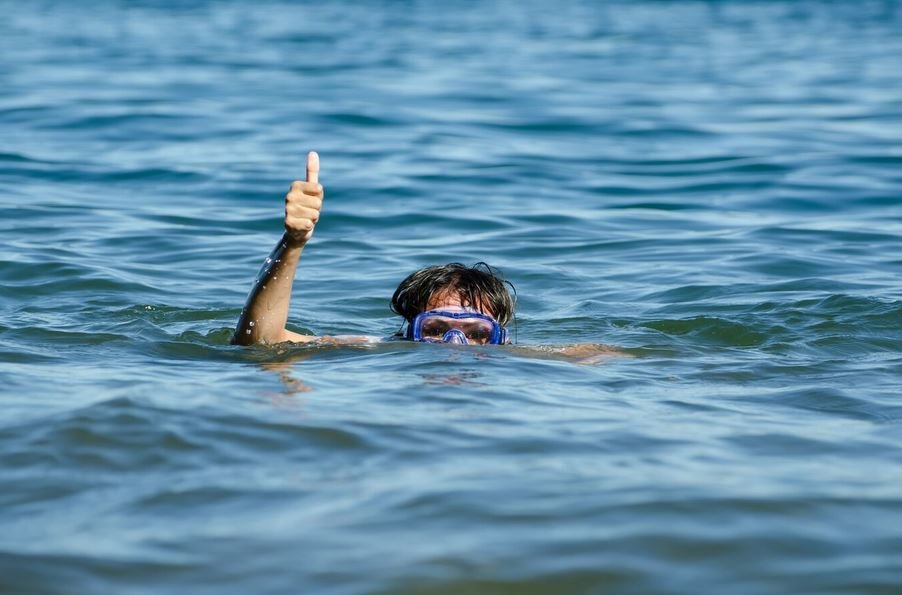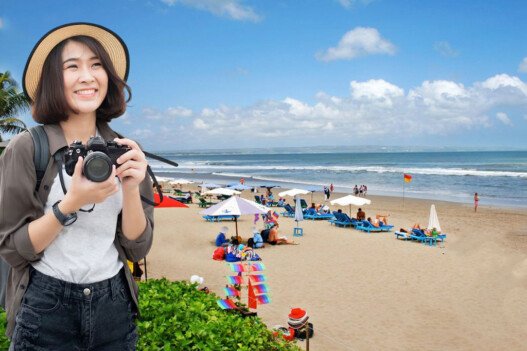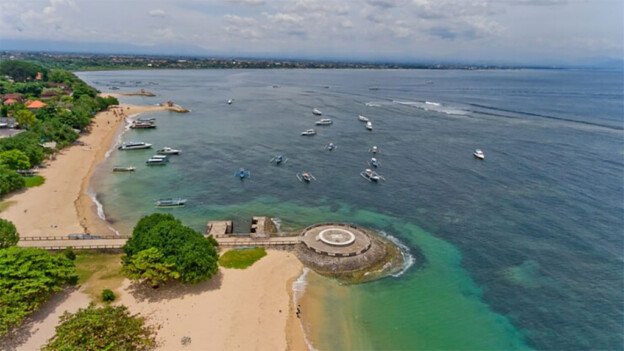Bali, often dubbed the “Island of the Gods,” is renowned for its stunning beaches, vibrant culture, and warm hospitality. For many travelers, the allure of Bali’s turquoise waters and golden sands is irresistible. However, before you dive in, it’s crucial to understand the safety aspects of swimming in Bali’s diverse coastal environments.
🌊 Understanding Bali’s Coastal Conditions
Bali’s beaches vary significantly in terms of water conditions, influenced by factors like location, season, and natural topography. Here’s what you need to know:
1. Rip Currents and Undertows
Certain beaches, especially those on Bali’s southwestern coast (e.g., Kuta, Seminyak, and Canggu), are known for strong rip currents and undertows. These powerful water flows can pull swimmers away from the shore, posing significant risks. It’s essential to be aware of these currents and exercise caution when swimming in such areas.
2. Wave Patterns and Tides
The size and strength of waves can vary throughout the day, influenced by tidal changes. Some beaches may appear calm at low tide but become hazardous during high tide. It’s advisable to check tide schedules and avoid swimming during high tide or when waves are particularly large.
3. Lack of Lifeguards
Unlike some international beach destinations, many beaches in Bali lack professional lifeguard services. This absence underscores the importance of personal vigilance and adherence to safety guidelines.
🏝️ Best Beaches for Swimming in Bali
While some beaches pose challenges, others offer safer conditions for swimming:
- Sanur Beach: Known for its calm waters and shallow reefs, making it ideal for families and novice swimmers.
- Padang Bai: Offers clear waters and is less affected by strong currents, suitable for snorkeling and swimming.
- Nusa Dua: Features well-maintained beaches with gentle waves, often monitored by local authorities.
- Blue Lagoon: A serene spot with clear waters, perfect for those seeking a peaceful swim.
⚠️ Safety Tips for Swimming in Bali
To ensure a safe and enjoyable experience, consider the following precautions:
1. Observe Flag Warnings
Pay attention to colored flags on the beach:
- 🟥 Red Flag: No swimming allowed due to dangerous conditions.
- 🟨 Yellow Flag: Caution advised; conditions may be hazardous.
- 🟩 Green Flag: Safe swimming conditions.
2. Stay Informed About Weather and Sea Conditions
Before heading to the beach, check local weather forecasts and sea conditions. Avoid swimming during storms or when strong winds are present.
3. Swim with a Buddy
Never swim alone. Having a companion can be crucial in case of emergencies.
4. Avoid Alcohol Before Swimming
Consuming alcohol impairs judgment and physical coordination, increasing the risk of accidents in the water.
5. Know How to React to Rip Currents
If caught in a rip current, remain calm and swim parallel to the shore to escape the current’s pull. Avoid swimming directly against it, as this can lead to exhaustion.
🐠 Marine Life and Health Considerations
While Bali’s waters are generally safe, it’s essential to be aware of potential marine hazards:
- Jellyfish: Some species can deliver painful stings. Wearing a full-body swimsuit can offer protection.
- Sun Exposure: The tropical sun can cause severe sunburn. Use waterproof sunscreen with a high SPF and reapply regularly.
- Dengue Fever: Mosquito-borne diseases like dengue fever are present in Bali. Use insect repellent and wear long sleeves to minimize bites.
🚨 Emergency Preparedness
In case of an emergency:
- Know Emergency Numbers: The general emergency number in Bali is 112.
- Locate Nearest Medical Facility: Identify the closest hospital or clinic to your location.
- Basic First Aid Knowledge: Learn basic first aid and CPR techniques.
- Travel Insurance: Ensure your travel insurance covers water-related activities.
🧳 Conclusion
Swimming in Bali’s beautiful beaches can be a memorable experience if approached with caution and respect for local conditions. By staying informed, adhering to safety guidelines, and being prepared for emergencies, you can enjoy the island’s coastal offerings safely.









